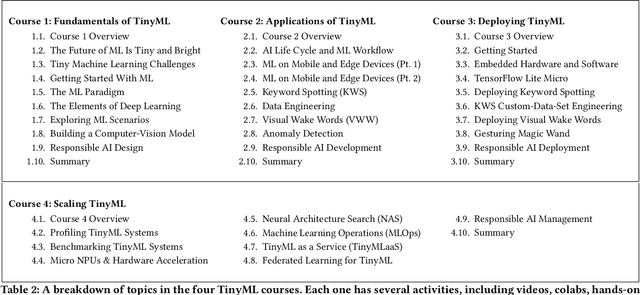Daniel Leiker
Generative AI for learning: Investigating the potential of synthetic learning videos
Apr 07, 2023Abstract:Recent advances in generative artificial intelligence (AI) have captured worldwide attention. Tools such as Dalle-2 and ChatGPT suggest that tasks previously thought to be beyond the capabilities of AI may now augment the productivity of creative media in various new ways, including through the generation of synthetic video. This research paper explores the utility of using AI-generated synthetic video to create viable educational content for online educational settings. To date, there is limited research investigating the real-world educational value of AI-generated synthetic media. To address this gap, we examined the impact of using AI-generated synthetic video in an online learning platform on both learners content acquisition and learning experience. We took a mixed-method approach, randomly assigning adult learners (n=83) into one of two micro-learning conditions, collecting pre- and post-learning assessments, and surveying participants on their learning experience. The control condition included a traditionally produced instructor video, while the experimental condition included a synthetic video with a realistic AI-generated character. The results show that learners in both conditions demonstrated significant improvement from pre- to post-learning (p<.001), with no significant differences in gains between the two conditions (p=.80). In addition, no differences were observed in how learners perceived the traditional and synthetic videos. These findings suggest that AI-generated synthetic learning videos have the potential to be a viable substitute for videos produced via traditional methods in online educational settings, making high quality educational content more accessible across the globe.
Widening Access to Applied Machine Learning with TinyML
Jun 09, 2021



Abstract:Broadening access to both computational and educational resources is critical to diffusing machine-learning (ML) innovation. However, today, most ML resources and experts are siloed in a few countries and organizations. In this paper, we describe our pedagogical approach to increasing access to applied ML through a massive open online course (MOOC) on Tiny Machine Learning (TinyML). We suggest that TinyML, ML on resource-constrained embedded devices, is an attractive means to widen access because TinyML both leverages low-cost and globally accessible hardware, and encourages the development of complete, self-contained applications, from data collection to deployment. To this end, a collaboration between academia (Harvard University) and industry (Google) produced a four-part MOOC that provides application-oriented instruction on how to develop solutions using TinyML. The series is openly available on the edX MOOC platform, has no prerequisites beyond basic programming, and is designed for learners from a global variety of backgrounds. It introduces pupils to real-world applications, ML algorithms, data-set engineering, and the ethical considerations of these technologies via hands-on programming and deployment of TinyML applications in both the cloud and their own microcontrollers. To facilitate continued learning, community building, and collaboration beyond the courses, we launched a standalone website, a forum, a chat, and an optional course-project competition. We also released the course materials publicly, hoping they will inspire the next generation of ML practitioners and educators and further broaden access to cutting-edge ML technologies.
 Add to Chrome
Add to Chrome Add to Firefox
Add to Firefox Add to Edge
Add to Edge